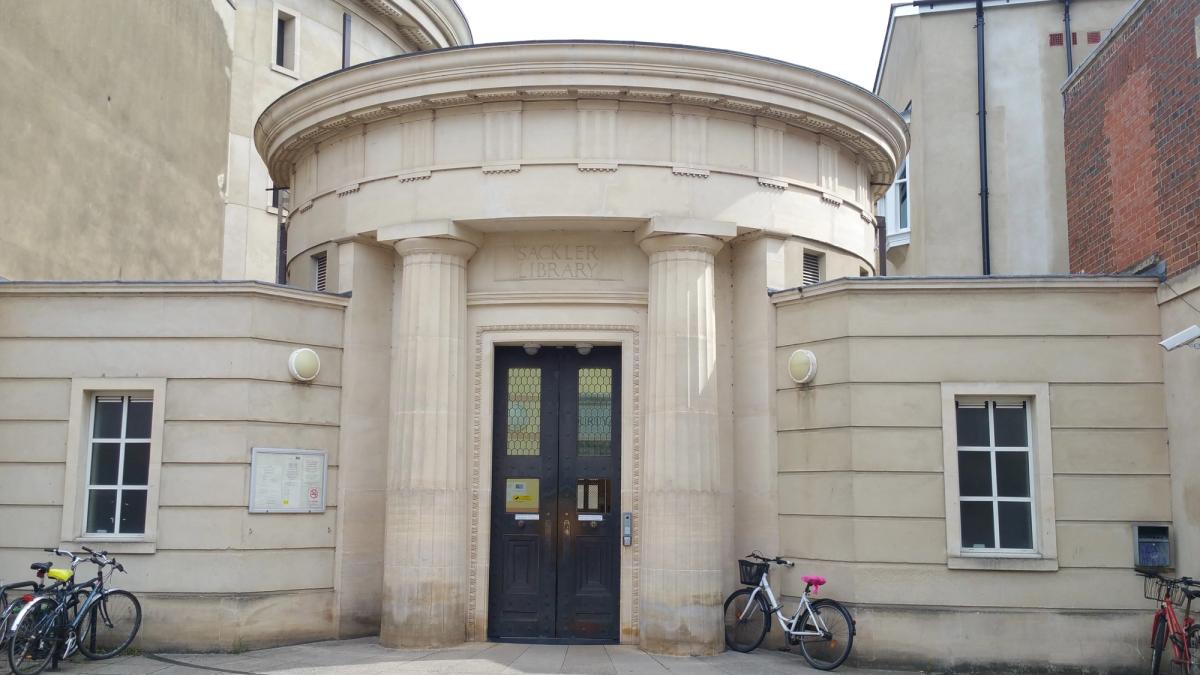The University of Oxford has ended its relationship with the Sackler family after protests from staff and students.
Several members of the Sackler family were the owners of Purdue Pharma, the company that produced the painkiller at the heart of the deadly opioid epidemic which is estimated to have claimed more than half a million lives across the US.
The university will remove the Sackler name from the Ashmolean Museum, the university’s museum of art and archaeology, and the Bodleian Libraries, as well as three research positions at the Ashmolean.
However, the university will retain donations received from the Sackler family and associated trusts “for their intended educational purposes”, the university said in a statement published on its website. The university said it has not received a monetary donation from the family since 2019.
The Sacklers have donated more than £10m to the university, the first donation dating back to 1991, via two UK-based charitable trusts owned by the family. The university used money from the Sacklers to in-part build the Sackler Library, a main research centre for art history students and a key component of the university’s world-famous Bodleian Libraries.
The Sackler name will be removed from six university buildings, spaces and staff posts, but it will be retained on the Clarendon Arch and on the Ashmolean Museum’s donor board for “the purposes of historical recording” of donations, according to the same statement.
As the full scale of the Sackler’s links to the opioid epidemic became clear, the university continued to maintain relationships with the US family. The ties were further maintained as Purdue attempted to navigate a multibillion-dollar bankruptcy settlement over its role in the epidemic with the US Justice Department.
Those relations have continued through to the present day. The depths of the links were revealed by a Financial Times investigation.
The University of Oxford took the decision to cut ties after the conclusion of an internal review overseen by the university’s new vice-chancellor Irene Tracey, a professor of anaesthetic neuroscience. The review was instigated after staff and students internally raised concerns to the university's leadership about the presence of the Sackler name.
The news has been welcomed by Oxford academics. The neuroscientist and author Henry Marsh, an alma mater of University College, Oxford, said in a tweet published today: "At last! I will no longer have to see the Sackler name in Oxford."
Sean Ketteringham, a current PhD student at the university, studying the National Trust's Modern art collection, said in a tweet today: "It’s official: Oxford’s University Council met yesterday and approved the removal of the Sackler name from their galleries, libraries, and posts. At last!"
Linking to the Financial Times investigation, Ketteringham tweeted on 21 February: "Appalling that Oxford and the Ashmolean Museum continues to welcome association with the Sackler family while the rest of the world washes its hands of their blood money."
“Oxford University has undertaken a review of its relationship with the Sackler family and their trusts, including the way their benefactions to the University are recognised,” the university said in the statement.
“Following this review, the University has decided that the University buildings, spaces and staff positions using the Sackler name will no longer do so,” it said.
Purdue Pharma’s business model revolved around the mass marketing of OxyContin, a prescription painkiller prescribed by general practitioners. OxyContin was a highly addictive opioid that contributed to the deaths of hundreds of thousands of US citizens. The company made tens of billions of dollars in profits from selling the drug, using a percentage of the revenue to integrate themselves into the cultural sector on both sides of the Atlantic.
From 2019 through to the present day, a series of prominent cultural institutions have cut ties with the Sackler family and removed the Sackler name from buildings. These include the Louvre Museum in Paris as well as the National Portrait Gallery, the Victoria and Albert Museum, the British Museum, the National Gallery and the Tate gallery group in London. In 2021, the Metropolitan Museum of Art in New York also dropped the Sackler name from seven exhibition spaces, including the wing that houses the Temple of Dendur.


